The Czech Republic National Day, celebrated on October 28, commemorates the declaration of independence from the Austro-Hungarian Empire in 1918, marking the beginning of Czechoslovakia—a pivotal chapter in Czech history. This day reflects the Czech Republic’s enduring pursuit of sovereignty, resilience, and national pride. Rooted in the establishment of an independent state following the disintegration of the Austro-Hungarian Empire after World War I, this holiday celebrates the shared vision and collaboration of the Czechs and Slovaks in pursuit of freedom. Today, National Day in the Czech Republic, or Czechia, symbolizes both the nation’s rich cultural heritage and its historic achievements.
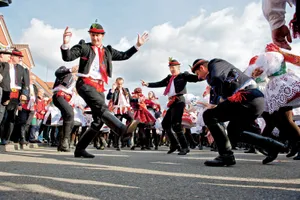
The Significance of October 28
On October 28, 1918, the Czechoslovak National Council, led by Tomáš Garrigue Masaryk, declared the independence of Czechoslovakia in Prague. This bold step was recognized by both the Allies and the defeated Central Powers, marking the birth of a new democratic state. The formation of Czechoslovakia brought together regions like Bohemia and Moravia—areas that now compose the modern Czech Republic—and Slovakia, uniting distinct languages, cultures, and histories under a shared vision for freedom. Masaryk became the republic’s first president, setting a foundation for prosperity and democracy that would influence the country’s political and cultural landscape for years to come.
Historical Evolution: From Prosperity to Conflict
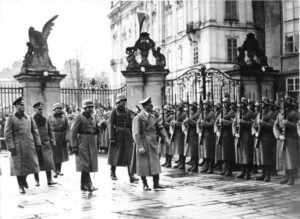
During the interwar period, Czechoslovakia flourished as a model of democracy and economic prosperity in Central Europe. However, as totalitarian ideologies spread, stability faltered. Nazi Germany’s 1938 annexation of the Sudetenland and subsequent occupation brought hardship, although Czechoslovak leaders maintained a government-in-exile in London.
After World War II, Czechoslovakia was reestablished but soon became part of the Soviet bloc. The 1968 Prague Spring reform movement, aiming to introduce democratic freedoms, was quickly quashed by Soviet forces, leaving a lasting impact on national memory.
The Velvet Revolution and the Path to Democracy
The 1989 Velvet Revolution marked a new chapter for Czechoslovakia. This peaceful uprising against communist rule led to the country’s first free elections since 1946 and saw Václav Havel, a former dissident and playwright, elected as president. Havel became an emblem of hope, freedom, and democratic change. However, the post-communist transition exposed divergent visions between the Czechs and Slovaks, ultimately leading to the peaceful dissolution of Czechoslovakia on January 1, 1993. Since then, the Czech Republic and Slovakia have pursued their own paths, both now successful democracies and members of NATO and the European Union.
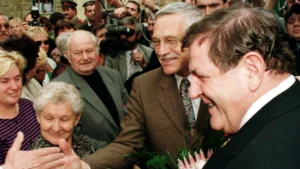
Czech National Day Traditions and Celebrations
Czech National Day is a cherished public holiday filled with parades, ceremonies, and cultural events across the country. The president awards state honors to citizens who have made exceptional contributions, celebrating Czechia’s achievements and inspiring national pride. The day is capped with festive fireworks, symbolizing the optimism, resilience, and hope that have characterized Czech history.
In addition to public ceremonies, the day offers a chance to reflect on Czechia’s journey, from its early days as Bohemia to becoming a modern European democracy. With a cultural legacy that includes Gothic architecture, classical music, and world-famous literature, the Czech Republic proudly celebrates its heritage and shares it with the world.
9 Fascinating Facts You Didn’t Know About the Czech Republic:
1. Thriving Expat Community:
The Czech Republic is home to around half a million foreigners, contributing to a vibrant expat community. This diversity fosters rich social circles and cultural exchanges, enhancing the local lifestyle.
2. Weekend Adventures Await:
Centrally located in Europe, the Czech Republic offers easy access to major cities like Berlin, Vienna, and Munich. This strategic position makes weekend getaways a delightful possibility for residents and visitors alike.
3. Home to Global Companies:
The Czech Republic is a hub for international businesses, including prominent firms like Deloitte and Exxon Mobil. Additionally, local giants such as Škoda and Budweiser Budvar play a significant role in the country’s economy.
4. Affordability:
With an average salary of approximately 26,000 CZK (~$1,000) per month, the cost of living remains quite reasonable. This affordability makes the Czech Republic an attractive destination for those looking to live, work, or study abroad.
5. Castle Rich:
Known as the most castle-rich country in Europe, the Czech Republic boasts over 200 castles. Iconic sites like Prague Castle and the picturesque Český Krumlov draw visitors with their stunning architecture and rich histories.
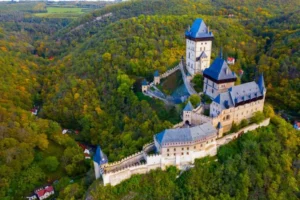
6. Czech Innovations:
Czechs have made notable contributions to global culture and technology, including the invention of contact lenses, sugar cubes, and even the term “robot.” These innovations reflect the country’s creative spirit.
7. Distinct Regions:
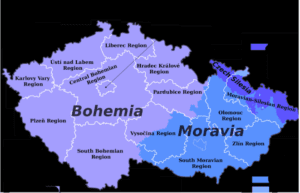
The Czech Republic is divided into two distinct regions—Bohemia and Moravia—each with its unique traditions, cultures, and dialects, enriching the national identity.
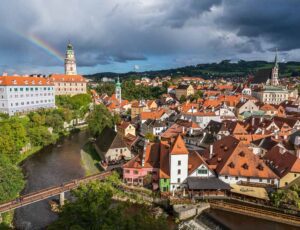
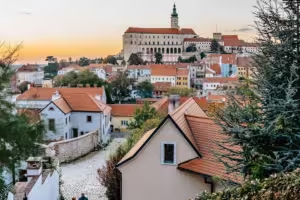
8. Cultural Celebrations:
National Day celebrations include parades, ceremonies, and cultural events that honor Czech history, unity, and pride, culminating in festive fireworks that light up the sky.
9. Rich Literary Heritage:
The Czech Republic boasts a rich literary tradition, home to celebrated authors such as Franz Kafka and Milan Kundera, whose works have left a lasting impact on global literature.
Czech Republic National Day: Honoring the Past, Celebrating the Future
For Czech citizens, National Day is more than a holiday; it is a tribute to the sacrifices and victories that have shaped their nation. The Czech Republic National Day not only honors the past but also emphasizes the nation’s commitment to democracy, unity, and peace. As the Czech Republic celebrates its independence, it reaffirms its values and aspirations, looking confidently to a future grounded in a proud and storied past.
















